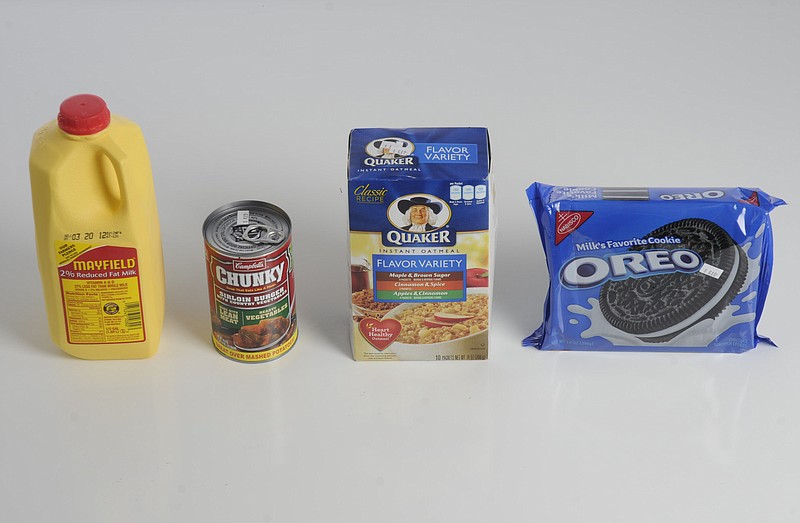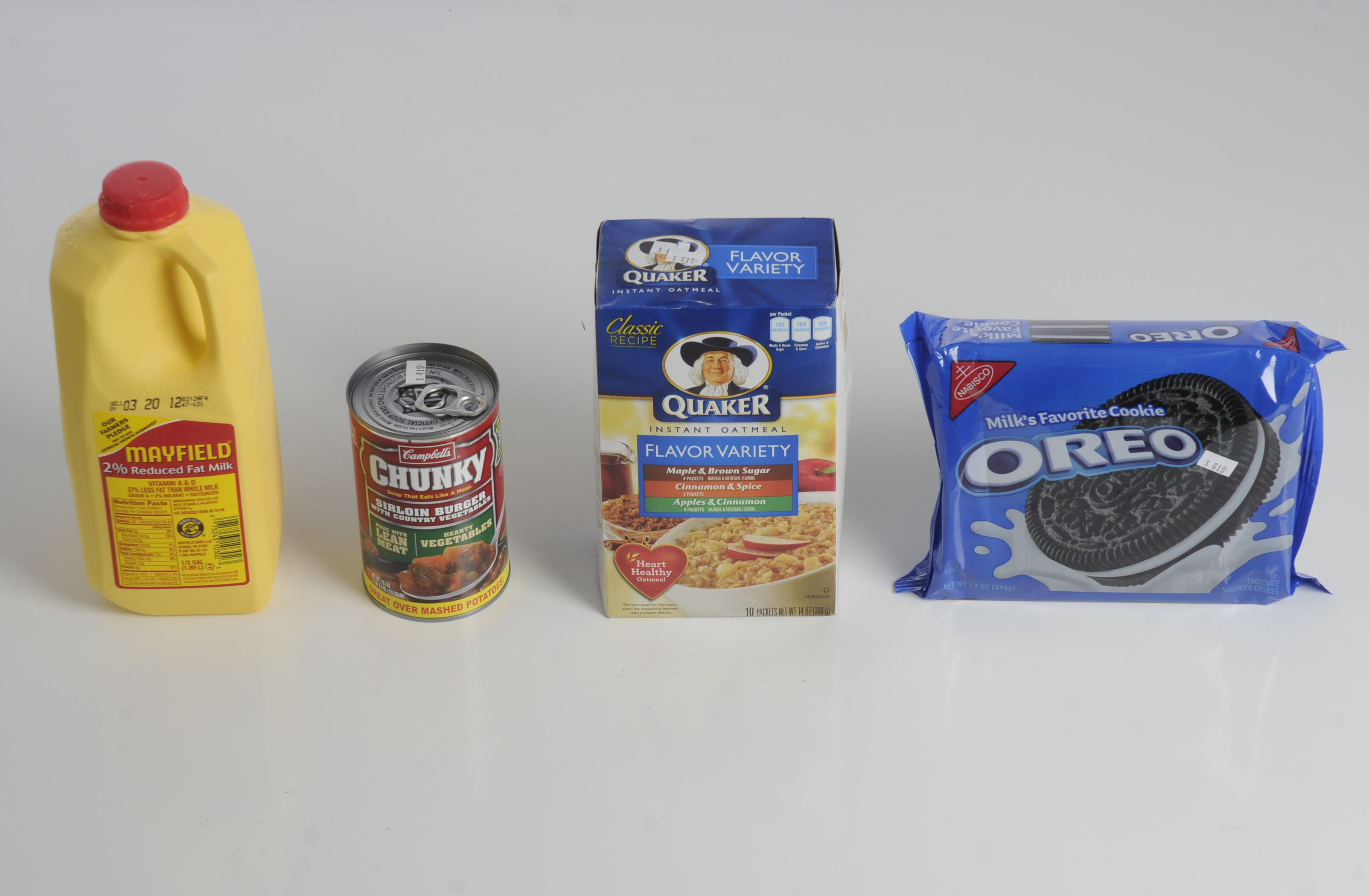Chelsea Catlin stopped by the University Center at UTC one recent evening to grab a snack. She bought a small bag of Jack Links beef jerky and a 20-ounce vitamin water.
The total? $10.47.
"It kind of ticks me off. I know I can go to Walmart and it's way cheaper, but it's convenient," she said. "If you are on campus already, you don't want to drive 10 to 15 minutes just for a snack."
It's widely accepted that convenience costs money, but an informal survey of prices on or near the University of Tennessee at Chattanooga campus shows that its students pay about one-third more than shoppers at nearby stores.
And when compared with the nearest Walmart, some prices at the campus store are almost twice as high.
The issue is not unique to UTC, but higher prices are a growing trend, experts say.
"I think the university stores have grown in number and importance over time," said Richard Vedder, director of the Center for College Affordability and Productivity, a research institute in Washington, D.C.
"Kids are into convenience. They don't want to walk six blocks, so universities have accommodated them by opening these stores," he said. "As a consequence of that, it has become a bigger issue than it was 50 years ago."
A review of four common items shows a wide range in prices among stores located in the UTC area.
A 14-ounce package of Oreos at the campus store by the dorms on Eighth Street costs $6.19. A bigger package, 15 1/2 ounces, sells for $2.98 at Walmart - the nearest full grocery store and about a 10-minute drive.
Buehler's Market on Market Street sells the cookies for 35 percent less, at $3.98. Walgreens on the North Shore came closest to UTC's price, selling the Oreos for $5.29.
Aramark operates the stores at UTC, and even though the company sets pricing "based on costs of goods plus a standard markup," they cannot have a price increase without the university's approval, UTC spokesman Chuck Cantrell wrote in an email.
"That being said, if a wholesaler has a price increase, it is normally passed along," he added.
UTC receives about 7 percent of the stores' revenues, school officials said.
Aramark said its pricing strategy includes intense, competitive shopping.
"We obtain pricing from all local establishments with similar products, including local convenience stores, before marketing any of our items," Karen Cutler, spokeswoman for Aramark, wrote in an email. "We are constantly conducting research to ensure that the products we offer meet the needs and dining preferences of our customers."
But comparing UTC's campus stores with area grocery stores and pharmacies is like comparing apples to bananas, said Cantrell.
"At best, our convenience stores are more like gas station markets, but even that comparison is not accurate," he said.
He said UTC's campus stores operate to serve a maximum of 1,500 customers.
"If you told any of these stores that the maximum number they could ever expect to serve is 1,500 customers, none of them likely would be open. They depend on much higher volume sales," he said.
Morgan Ovies, a UTC freshman from Franklin, Tenn., said she doesn't shop often at the campus stores because prices usually are doubled when compared to other stores.
"I only go for little things, like a water bottle or snacks," she said.
But she used to shop there a lot more during her first semester. There are no large grocery stores within walking distance of the university.
"I didn't have a car and depended more on people to go grocery shopping," she said.
Students who do buy from campus stores usually don't pay a lot of attention to prices, students say, because many of them pay with their Mocs Card - the school's ID that also can be used as a debit card at the bookstore, cafeteria and convenience stores as well as students' meal plans.
Different meal plans are offered to any student in the school, but freshmen are required to buy a meal plan that costs about $2,600 a year. The meal plan includes "Mocs bucks" to spend at the stores, and they can add more to their cards.
About 3,000 students are on a meal plan at UTC.
"I think [the store prices] are a little unfair, but it would be more of a controversy if we had to pay with real money," said Michael Piatt, 18, who lives in a dorm.
What many students don't understand, said Jeff Ovies, Morgan's father, is that "if I put $100 in the card, you are spending $100."
But he doesn't think the university is trying to gouge students, either.
"The prices are a little high, and you don't want to see that, but it's about convenience," he said while visiting his daughter at UTC.
"Also, Walmart buys in bulk, truckloads versus a convenience store that perhaps buys a case," he added.
At Dalton State College, College Bookstores of America operates the bookstore/convenience store.
"The school does have some sort of process or ability to look at items and determine if they are too high, but they are their own identity," said David Ballentine, director of auxiliary services at Dalton State.
At Dalton State, the 14-ounce package of Oreos costs $5.05.
"After looking at what they are providing, we feel very comfortable," Ballentine said. "I don't see extreme differences [in prices]."
And they have not heard of any complaints from students, he added.
"Students appreciate having the items available to them," he said.
Dalton State receives between 10 and 12 percent of sales, which can be in the $1 million range annually, he said.
"The problem is not necessarily that the pricing is too high, because again, if it had gone too high people would stop paying for it," said Chris Morran, deputy editor of Consumerist.com, a consumer news and advocacy website.
"I think it's the cavalier attitude of these businesses that they can overcharge because these people are young and they might not be thinking," he said.
"They are taking advantage of people just because they think they don't know any better and, if they do, they might just not have a choice, and that's just unfair," he added.
UTC's Cantrell said the campus convenience stores are there if a student is out of shampoo or out of cereal and needs to pick up something right away.
"We don't expect our students to shop exclusively at our convenience stores; the stores aren't meant to serve that kind of need," he said.
While studies have been done about prices of room and board at universities, not much has been done about prices at campus convenience stores, said Vedder at the Center for College Affordability and Productivity.
"There's been some growth in this practice over time, but I couldn't give you any specific data on this," he said.
Morran said students should be specifically shown the difference in pricing.
"Whoever is in charge of that money [students use] should sit them down and say, 'Look, this is what you should pay for XYZ; don't pay $5 for a half-gallon of milk,'" he said.

